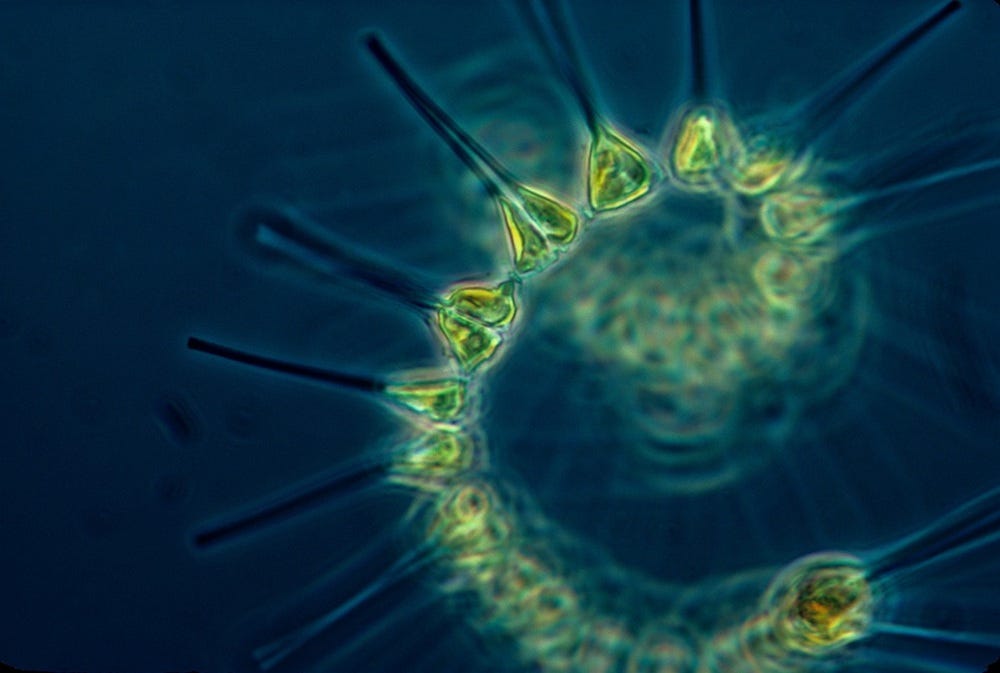The heat's on us to cool our nature
Pioneering research has revealed how tiny organisms critical to marine food chains are threatened by future global warming
THE sea is where life supposedly began. Certainly, it's where the grand experiment that is evolution took off before its progeny crawled up the beaches to colonise land, and begin it anew.
Now, the supposed pinnacle of that evolutionary 'grand design' is pissing it all back into the sea; sprawling itself over the Earth like the invasive species it surely is, humanity is unravelling the tapestry of life.
This we know, from scientific studies decrying loss of bio-diversity, tallying extinctions, and revealing the magnitude of our impact on the planet's terrestrial systems, from soil to climate. The sea isn't immune to our depredations either.
A new study has highlighted how some marine life could face extinction over the next century, if human-induced global warming is permitted to worsen. That has decidedly worrying implications for marine ecology – and indeed humanity.
The research, led by the University of Bristol and published recently in the journal Nature, examines the likely fate of tiny ocean organisms called plankton, the foundation of the marine food chain.
For the first time, say the scientists involved, the study compares how plankton responded when the world last experienced significant warming, back in ancient times, with what is thought likely to happen under similar conditions by the end of this century.
Oceans’ lifeblood
They found that the plankton was unable to keep pace with the current speed of temperature rises, putting huge swathes of marine life – including fish which depend on these organisms for food – in peril.
“The results are alarming as even with the more conservative climate projections of a 2C increase, it is clear plankton cannot adjust quickly enough to match the much faster rate of warming, which we’re experiencing now and looks set to continue,” said lead author, Dr Rui Ying, who led the project as part of his PhD in marine ecology at the university.
“Plankton are the lifeblood of the oceans, supporting the marine food web and carbon storage. If their existence is endangered, it will present an unprecedented threat, disrupting the whole marine ecosystem with devastating wide-reaching consequences for marine life, and also human food supplies.”
To reach this conclusion, the researchers developed a new model. This allowed analysis of how plankton behaved some 21,000 years ago during the last Ice Age to be analysed alongside how they might act under future climate projections. By focusing on a specific plankton group, which has existed throughout the ages, the modelling work is said to offer unprecedented insights and levels of accuracy.
“The past is often considered key to understanding what the world could look like in future,” Ying added. “Geological records showed that plankton previously relocated away from the warmer oceans to survive.
“But using the same model of ecology and climate, projections showed the current and future rate of warming was too great for this to be possible again, potentially wiping out the precious organisms.”
Under The Paris Agreement, 196 nations agreed to limit the increase in the global average temperature to well below 2C above pre-industrial levels, and strive to limit the increase to 1.5C. But a United Nations report published in October 2024 has warned that the world faces as much as 3.1C warming if governments do not take more action to reduce carbon emissions.
Daniela Schmidt, professor of Earth sciences at the University of Bristol, is a world-renowned marine ecologist who has led multiple Intergovernmental Panel on Climate Change (IPCC) reports; she also co-authored the research paper.
“This work emphasises the great risks posed by the dramatically fast climate and environmental changes the world is now facing,” she said.
“With these worrying trends set to worsen, there will be very real consequences for our ecosystems and people’s livelihoods, including fishing communities. So the message is clear – all nations must collectively and individually step up efforts and measures to keep global warming to a minimum.”
The heat's on us to change our ways, then; and fast.
MC




